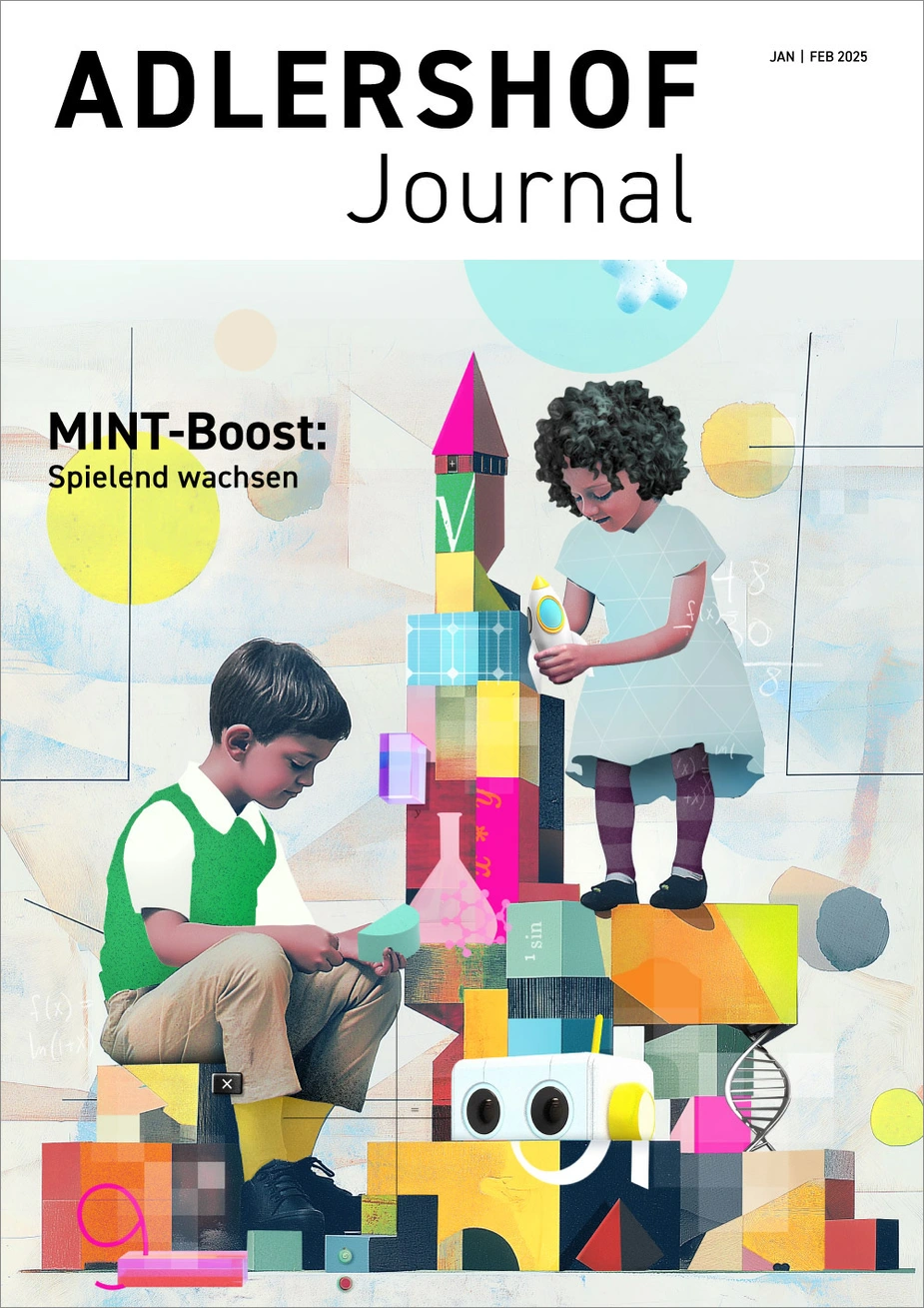Adlershof Journal January/February 2025
Boosting STEM: Play your way to growth
ESSAY
by Matthias Gerschwitz: Tomorrow, children, joy awaits!
IN CONVERSATION WITH
Melissa Horchemer, who wants to inspire young people for scientific careers
PORTRAIT
The molecule splitter: Michelle Brown is working on producing green hydrogen
COVER STORY
Supercharging talent: How the Technology Park in Adlershof supports the next generation of STEM professionals
COMPANIES
Pepperl+Fuchs build in Adlershof: A manufacturer of industrial sensors and explosion protection solutions is consolidating its Berlin locations
INSIGHTS
Locomotive practice pieces: Five-hundred apprentices are being trained at the new Apprentice Workshop of Deutsche Bahn (DB)
CAMPUS
Studying together what belongs together: The BA-level study course IMP at Humboldt-Universität zu Berlin combines computer science, mathematics, and physics
NEW COMPANIES
Developing catalysts with robots and AI: Dunia wants to protect Earth from its increasing destruction
MEDIA
A bandage on many wounds: The life of Etty Hillesum was filmed at the studios of the LichtHaus Group
